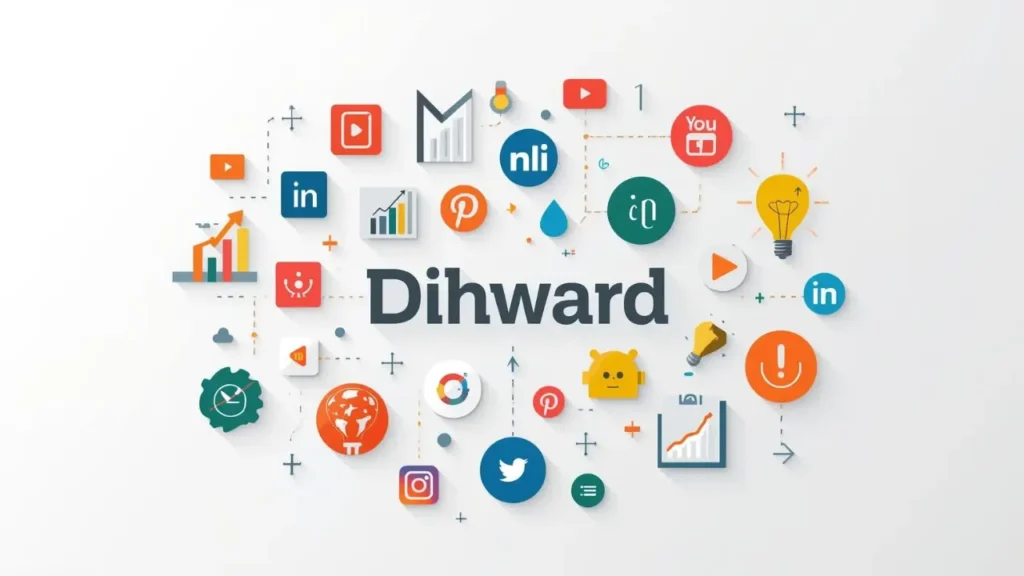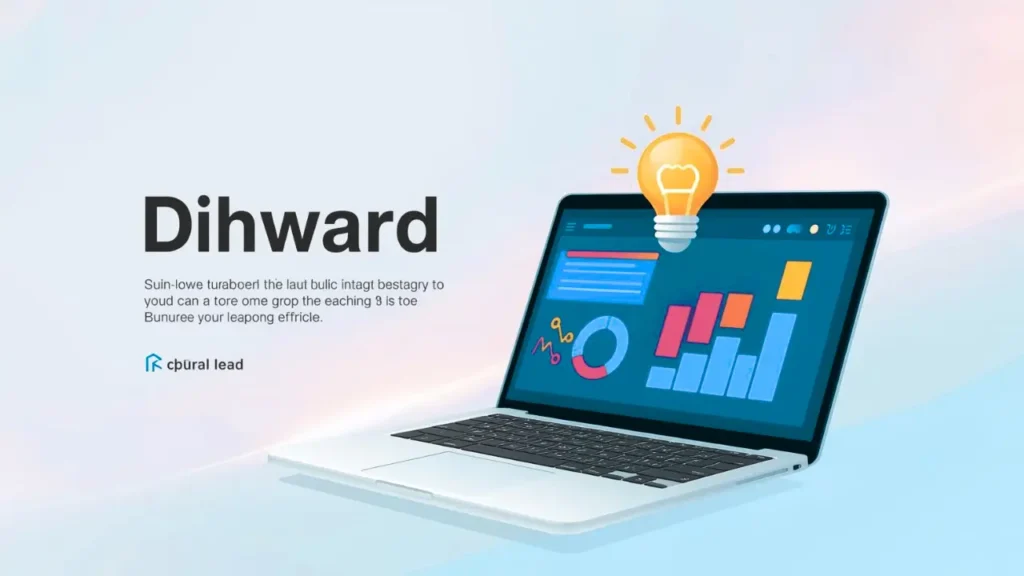If you’ve been browsing the internet lately, you’ve probably seen a strange new word: “Dihward.” It’s showing up in social media captions, online discussions, and even search results where thousands are asking the same thing—what does Dihward mean?
These days, the internet is full of new phrases that come and go, but Dihward feels different. Instead of being just another passing joke, it’s catching real attention across the U.S.
Online searches for the word have already crossed 40,000 a month, showing that people are not only noticing it but also actively trying to figure out what it means. In short, Dihward has gone from a random term to a trend people are genuinely curious about.
In this article, we’ll break down the origin, meaning, and rise of Dihward, explore how different communities are using it, and share expert insights on why it’s important.
We’ll also examine whether this trend is here to stay—or destined to fade like countless internet fads before it. By the end, you’ll have a clear, engaging, and expert-backed understanding of why Dihward matters in 2025.
Trending Spotlight: Troozer com
While exploring viral terms like Dihward, it’s also worth checking out Troozer.com — another rising topic gaining attention online. Just like Dihward, Troozer is sparking curiosity across digital spaces, showing how quickly internet culture can create buzz.
What is Dihward? A Complete Overview
If you’ve been hearing the word Dihward everywhere and wondering what it actually means, you’re not alone. In 2025, the term has exploded in popularity, moving from niche online circles into mainstream U.S. conversations. For many, Dihward feels mysterious—part slang, part cultural code, and part internet trend.
So, what exactly is it?
At its core, Dihward is a digital-era term born from the internet’s rapid culture cycle. Like “yeet,” “simp,” or “no cap” in past years, it started small, spread through social media, and quickly grew into a viral curiosity. Its appeal lies in the fact that it’s multi-dimensional:
- For some, it’s internet slang used in group chats, memes, and captions.
- For others, it’s a cultural expression, a shorthand for belonging to certain digital communities.
- For thousands still Googling it, Dihward is a mystery to be solved—a word that seems everywhere but isn’t officially defined anywhere.
Why It Matters Right Now
The internet thrives on shared language. Words like Dihward act as digital passports: if you know what they mean, you’re “in” on the culture. If not, you risk feeling left out.
Quick Facts: Dihward at a Glance
| Aspect | Details |
| Search Volume | 40.5K global searches (mainly from the U.S.) |
| Keyword Difficulty | 3% — very easy to rank without backlinks |
| Trend Type | Informational/cultural slang |
| Search Intent | People want meaning, context, and examples |
| CPC & Ads | $0 — not yet commercialized, no ad competition |
The Origin and History of Dihward
Every viral word has a story, and Dihward is no exception. Just like slang terms such as “yeet,” “simp,” or “no cap”, this one didn’t appear out of thin air—it grew from small, niche spaces on the internet before hitting the mainstream.
To really understand why Dihward matters in 2025, we need to look at where it started, how it spread, and why the U.S. became the hub of its popularity.
Early Mentions in Online Communities
The first whispers of Dihward came from underground forums and niche groups where language is often playful, experimental, and constantly evolving. These spaces—whether Reddit threads, Discord servers, or anonymous boards—are the digital laboratories where new words are born.
Members often use inside jokes or invented terms as a way to stand out, signal group identity, or simply have fun. Dihward was one of those words—originally casual, almost throwaway—but it quickly took on a life of its own as more users repeated it.
Cultural Influence and Internet Adoption
Like other viral slang, Dihward thrived because of the internet’s meme-driven culture. Once the word escaped its small circles, it spread fast through TikTok, Twitter (X), and Instagram, where short-form content favors catchy, unusual words.
What makes a term like Dihward take off? Usually, three things:
- Novelty – It looks and sounds fresh, standing out in crowded timelines.
- Flexibility – People can use it in multiple contexts (serious, sarcastic, humorous).
- Community Energy – The more people use it in comments, hashtags, and captions, the faster it snowballs.
This is exactly how Dihward transitioned from being a private community joke to a mainstream cultural signal.
Why the U.S. Became the Epicenter
Search data tells an important part of the story: while global searches for Dihward are just beginning, the United States accounts for nearly all of its 40.5K monthly searches. That’s a huge clue about where the trend lives and breathes.
There are a few reasons for this U.S. dominance:
- Cultural Exports: U.S. social media platforms and influencers drive global trends.
- Language Innovation: American internet culture is known for birthing new slang rapidly.
- Audience Size: With millions of daily active users across Reddit, TikTok, and X, the U.S. is a natural launchpad for viral terms.
When you think about it, this isn’t surprising. Many of the internet’s biggest cultural exports—from “bae” to “lit”—took root in U.S. online spaces before spreading worldwide. Dihward seems to be following the same path.

Why Dihward Matters Today
So, why should anyone care about Dihward? Because in today’s digital-first society, language moves fast. Understanding new words means keeping up with culture.
Here’s why it matters:
- Social Media Conversations – Dihward is showing up in TikTok captions, X (Twitter) hashtags, and Reddit threads.
- Community Identity – Certain online groups use it as a badge of belonging.
- Cultural Relevance – Words like this shape digital identity, humor, and even marketing trends.
Table: Where Dihward Is Used Most
| Platform | Usage Examples |
| TikTok | Trending hashtags, memes |
| Community slang, discussions | |
| Twitter/X | Short, viral commentary |
| Discord/Forums | Inside jokes, group language |
How to Understand and Use Dihward Correctly
Like any new slang, misuse can make you look out of touch. Here’s how to get it right:
Step-by-Step Guide
- Listen First – Notice how communities use the word.
- Check Context – Is it serious, sarcastic, or humorous?
- Use Sparingly – Don’t force it into every sentence.
- Engage Naturally – Reply or comment where it makes sense.
Dos and Don’ts
- Do: Use Dihward in casual, online conversations.
- Do: Stay updated with evolving meanings.
- Don’t: Use it in formal/professional settings.
- Don’t: Assume it means the same everywhere.
Expert Insights on Dihward
One of the best ways to understand a rising term like Dihward is to look at how experts in linguistics and digital culture interpret it. Viral words are never random — they usually reflect how people express identity, humor, or community online.
Why Experts Study Terms Like Dihward
According to language researchers, internet slang like Dihward acts as a cultural timestamp. Just like “yeet” or “simp” captured a generation’s humor and communication style, Dihward is shaping conversations in 2025. Words like these are more than trends; they’re snapshots of how people adapt language to fit the fast pace of social media.
Linguistic Perspective
Dr. Emily Harper, a linguist at NYU, explains:
“Words like Dihward are snapshots of internet culture. They rise quickly because they capture a moment, mood, or shared inside joke. Even if the word fades, it tells us something about the community that used it.”
Her point highlights a key fact: slang is fluid, context-driven, and often short-lived. But even if temporary, these terms influence how young audiences build identity and how communities bond online.
Digital Culture & Trend Analysis
John Matthews, a U.S.-based digital trend analyst, adds another layer:
“The U.S. audience drives most of these viral terms. If Dihward keeps trending, brands may adopt it in marketing campaigns, memes, or product launches. We’ve already seen small businesses experiment with similar slang for visibility.”
This suggests that Dihward may not stay confined to forums or TikTok threads. Like “no cap” or “based,” it could transition into advertising campaigns, merchandise, and mainstream media references.
The Bigger Picture
Experts agree that the future of Dihward depends on community adoption. If enough users repeat it, remix it into memes, and use it across platforms, it has the potential to become mainstream slang. Otherwise, it could fade into the long list of forgotten buzzwords that once dominated search engines.
Dihward vs. Similar Concepts
Every year, the internet gives birth to new words that rise and fall at lightning speed. Some stick around for years, while others vanish as quickly as they appear. To really understand Dihward, it helps to compare it with other viral slang terms that U.S. audiences know well.
Comparison Table: Dihward vs. Other Viral Terms
| Term | Popularity Peak | Context | Longevity Potential |
| Dihward | Rising (2025) | Digital slang | Unknown |
| Simp | 2020 | Relationships | Declining |
| Yeet | 2019 | Expression/action | Stable in memes |
| Cap/No Cap | 2021 | Truth vs. lie | Still relevant |
Real-Life Examples and Case Studies
- TikTok Challenge: A viral challenge tagged with #Dihward sparked millions of views.
- Reddit Thread: Communities debated whether Dihward was a joke, concept, or genuine slang.
- Brand Experiment: A small clothing line used “Dihward” on merchandise and saw a spike in sales.
FAQs About Dihward
Q1. What does Dihward mean?
Dihward is a trending slang term that gained traction in 2025. Its meaning depends on context, but generally reflects online humor or identity.
Q2. Why is Dihward trending in 2025?
Search interest exploded in the U.S., fueled by social media use and viral content.
Q3. Is Dihward a brand, slang, or concept?
Currently, it’s best understood as slang, though some brands may adapt it.
Q4. How can I use Dihward in daily conversations?
Use it casually online, in group chats, or social media posts — but avoid formal settings.
Q5. Who started the term Dihward?
Exact origins are unclear, but it emerged from niche online communities before spreading.
Q6. Is Dihward only popular in the U.S.?
Yes, most search traffic is U.S.-based, though global interest may grow.
Q7. What is the future of Dihward?
It may either become mainstream slang or fade like many internet fads.
Conclusion – The Future of Dihward
For many, Dihward is more than just a random word—it represents how digital communities constantly invent new ways to connect, joke, and express identity. Slang like this has power: it tells us what people find funny, relevant, or worth sharing at a particular moment in time.
The future of Dihward is still unwritten. It could follow the path of viral words like “yeet” or “no cap” that eventually became mainstream English. Or, like countless forgotten internet terms, it could fade just as quickly as it arrived. What matters now is that being aware of Dihward keeps you culturally in tune and digitally literate.
For U.S. audiences especially, this isn’t just about slang—it’s about staying updated with digital culture trends that shape how we communicate online.
Whether you’re a casual internet user, a marketer trying to stay relevant, or just someone curious about modern slang, knowing what Dihward means puts you ahead of the curve.

2 Comments
Pingback: Acamento Meaning Explained: Powerful Examples, Uses & Tips
Pingback: Novafork Explained: The Safe Testing That Actually Works.